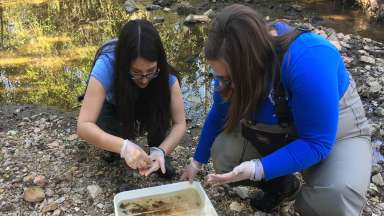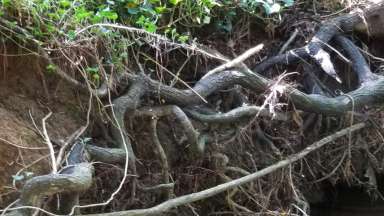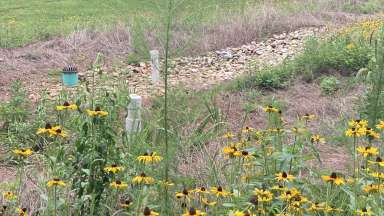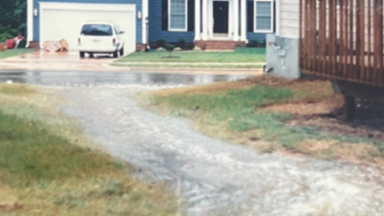Jump To:
Stream Health
As a stream monitor, you'll learn more about Raleigh's waterways and collect data on the overall health/quality of a stream. Raleigh Stormwater staff monitor stream health too.
| What You'll Track | Description |
|---|---|
| Dissolved Oxygen | The amount of oxygen dissolved in water that’s available for aquatic organisms. A healthy stream has lots of dissolved oxygen! |
| Bacteria | Streams have lots of ‘good’ bacteria, but when excessive amounts of ‘bad’ bacteria enter a stream it can negatively impact water quality. Sources of bacterial pollution include: illegal sewer connections to storm sewers, sanitary sewer overflows and leaks, failing septic tanks, farm animal waste, and improper disposal of pet waste. |
| Nutrients | Chemical elements, such as nitrogen and phosphorus, found naturally in small amounts in streams. Nitrogen and phosphorus are necessary for plant health, but excessive amounts can decrease the amount of dissolved oxygen available to aquatic organisms. |
| Temperature | Water temperature affects the level of dissolved oxygen, how quickly photosynthesis occurs, as well as organisms’ resiliency to disease and other stressors. |
| Turbidity | How clear the water’s appearance is. Turbid water is dark or cloudy in appearance, often as a result of soil erosion and sedimentation, urban runoff, or suspended plant debris. |
Find a Location
Use the Raleigh Stream Watch dashboard to see what streams volunteers are monitoring. You can also see the water quality data they've collected!
Volunteers: You can add data to the Raleigh Stream Watch dashboard. The data is for educational purposes only. We collect other water samples for regulatory requirements.
Requirements
- You need to complete a workshop before volunteering
- There's a one-year volunteer commitment
- Water samples are taken monthly
- Collecting samples of aquatic insects is done in the fall or spring (This is optional)
- Use the Water Quality Sampling Form to add your data to the dashboard.
Working in the Stream
You'll be collecting samples from the stream to monitor its health.
- If you see water pollution, please let us know by email.
- Remember to get permission from nearby residents if you need to enter their property to get to the stream.
- Volunteers will receive safety vests and monitoring kits
Statewide Data
Stream health is important all across North Carolina. View NC Stream Watch Map to see data from volunteers statewide.




